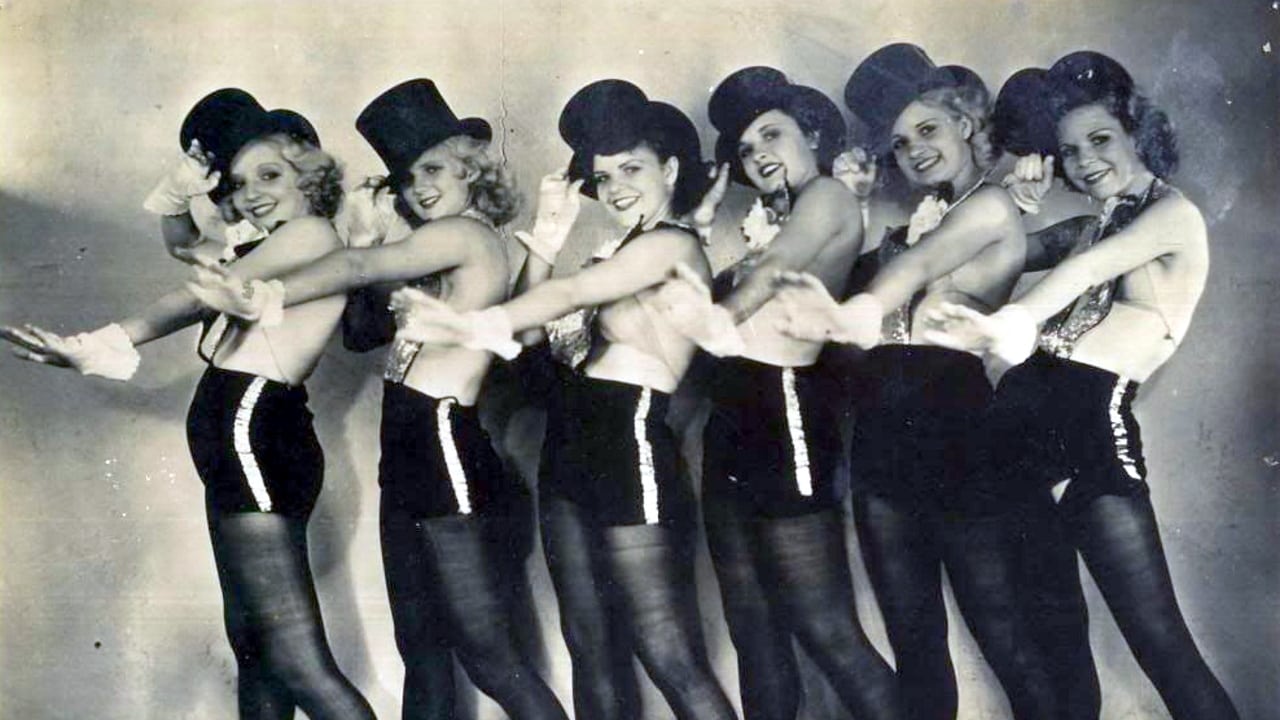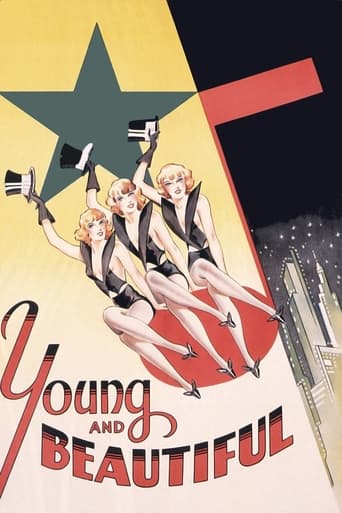

This is one of those hodge-podge efforts that makes you wonder if it was planned so much as grew. The main plot concerns movie publicity man William Haines -- he appeared for two movies for Mascot this year, for no clear reason -- who promotes girlfriend Judith Allen into a star, but she leaves him over the constant work and pointless publicity stunts. This state of affairs is interrupted by some musical numbers. In the first, the WAMPAS babies get to dance with men in masks representing then-hot stars, and in the second, Shaw and Lee (yay!) wander by with a piano and Ted Weems' old vocalist sits down and kicks over a chorus show. This soon vanishes to resume the story.Perhaps this movie was begun before the Production Code bore down and the interludes were added to bring it up to Feature length. The individual bits are pretty good, although the line readings are a bit weak.
... View MoreThe Plot. Bob Preston, publicity man for Superba Pictures, uses his publicity skills in an attempt to make this fiancée June Dale the most famous movie star in the world. But in doing so, he forgets that women want to be attended to for themselves, not as objects of fame.I was looking forward to seeing this picture giving the stellar reviews. Unfortunately it's actually a poor excuse for a movie. Starring a bunch of unknowns, made by an unknown studio and directed by a largely unknown director whose only claim to fame that I can tell was co-directing The Marx Brother's Coconuts 5 years earlier.Groucho said he didn't understand comedy.It's a strange movie where in one musical number people where masks of famous Hollywood stars like Keaton and Gable and Chaplin. It just never really comes together. It's not horrible, but it's not really interesting enough to recommend.
... View MoreYears ago, I read a book that said that William Haines' huge career of the late 1920s and into the 30s came to an abrupt halt because folks pushing for the new Production Code were also concerned about at least cosmetically cleaning up the image of the Hollywood stars. And, since Haines was rather open about being gay, his contract with MGM was dropped and he became a has-been. Well, perhaps this isn't 100% true. First, apparently Haines landed on his feet and became a very successful interior decorator. Second, the once boyish good looks of Haines were not at all evident by 1934. Now, in films like this one and his final picture (also made in 1934), he looks like a very ordinary bank teller sort of guy--with a receding hairline and a bit of a paunch--and quite a bit like Grady Sutton! I think time just caught up with the guy and that would explain his fading from the screen. This would explain why he was now making films for tiny Mascot Films. So, is the paunchier and more ordinary Haines any good in this film? And, since it's from Mascot is it any good at all? Well, at least it is not horrible!While Haines is the star of this picture, the real stars are the Wampas Baby Stars. Who are these folks? Well, each year from 1922 to 1935, a group of young actresses were chosen by this organization as the stars to look for in the future. A few of the up and coming stars did go on to great fame (such as Clara Bow, Mary Astor and Ginger Rogers)...most just faded into obscurity after the year of promotions was finished. Considering the 1934 lot was the last selected, you wonder if perhaps this film finished them off!The story itself has to do with Bob (Haines) and his attempt to make his girlfriend, June Dale, a star with Superba Pictures. The studio head is played by Joseph Cawthorn and it's obvious he's meant to be a Samuel Goldwyn-type. He looks almost exactly like Goldwyn and his language is filled with malapropisms just like those attributed to Goldwyn. However, Bob loses sight of June and has practically lost her by the end of the film.In between there are lost of appearances by the Wampas girls...singing, dancing, lounging around the pool. They seem to be doing just about everything...except acting!! The weirdest moment, however, is the ultra-bizarro song and dance number where the women's partners are all guy wearing super-creepy masks of current Hollywood stars. Then, the women remove the masks and hold them high...much like they were lifting up severed heads following a guillotining!!! It's so sick and strange, it alone makes the film worth seeing. I also liked the funny dance number late in the film when the ladies are dancing...as are the workmen who are nearby. Goofy but also very self-aware and funny. Now I am not saying it's a good film overall...it's very episodic and second-rate. But for folks with a lot of patience, it's worth a look.
... View MoreThe Wampas Baby Stars were created in 1923 in which 13 new actresses were chosen "who during the past year have shown the most talent and promise for eventual stardom". The first ceremony was almost akin to the Oscars - Bebe Daniels sang and Buster Keaton, Wallace Reed, Nazimova and Jackie Coogan appeared. In the beginning a lot of the stars really made good and exceeded all of the expectations (Colleen Moore, Evelyn Brent, Laura La Plante, Clara Bow, Dorothy Mackaill) but by the early thirties (1931 being an exceptional year with Joan Blondell, Frances Dee, Sidney Fox etc, in fact the majority became stars) with the depression and hard times forcing economy, the contest came to an end. No Wampas Babies were chosen in 1933 but in 1934 Paramount and Mascot created films in which the "babies" were to appear - Paramount's was "Kiss and Make Up" and Mascot's was "Young and Beautiful". By the time William Haines made "Young and Beautiful" he was established as one of the best interior designers in Hollywood and his heart just wasn't in movies anymore. He was still playing the wise cracker go getter.Bob Preston (Haines) is a publicity agent for Superba Pictures and his latest stunt is a doozy - June Dale (Judith Allen) has been kidnapped!!! of course she turns up but she is getting pretty fed up with all the silly stunts. Ted Fio Rita is on hand with his band to provide the proceedings with some catchy dance music. Bob is trying his hardest to get June a Hollywood contract - but someone else is very interested in her as well. It's John Miljan - so there may be some underhanded tricks along the way!! There is a very snappy musical number - I didn't catch the title but given as good a production as Mascot could give. Girls dance on tables, on a piano, even a painting comes to life!! everyone gets in on the act.Wampas baby Katherine Williams is the only girl who stands out with her dreams of serious roles conflicting with the reality of cheesecake and publicity. When she finally gets her chance, nerves get the better of her and it ends tragically. Funnily enough, Judith Allen was not a Wampas Baby and she should have become a star. She started out in a Cecil B. DeMille movie "This Day and Age' and starred opposite Bing Crosby in "Too Much Harmony", she also played in "The Witching Hour" and with Shirley Temple in "Bright Eyes" but she finished up in westerns and quickies. Stardom can be fickle. 1934 was a lean year for Wampas Babies - the only two that made a mark were Jacqueline Welles (who didn't appear in this movie) who continued on through the 1940s as Julie Bishop, and Lucille Lund, who appeared as Bela Lugosi's wife in "The Black Cat" (Welles had the female lead) and played the villainous "Duchess" in the serial "Blake of Scotland Yard" (1937).
... View More